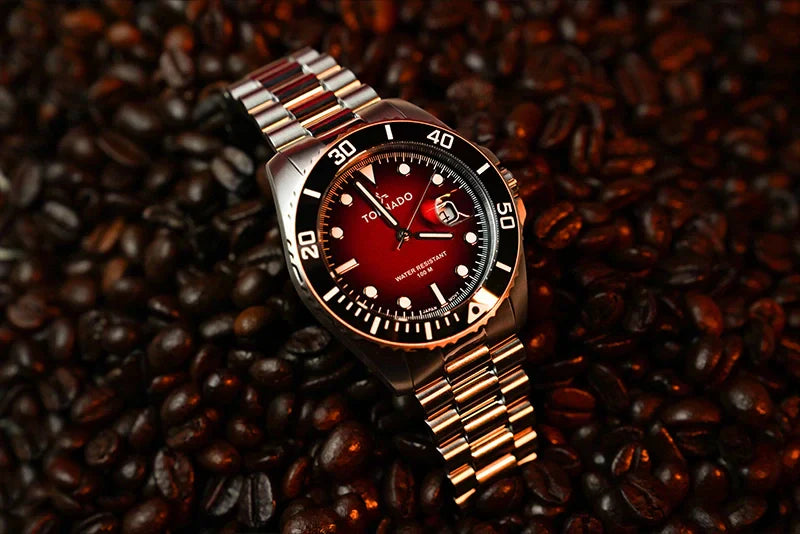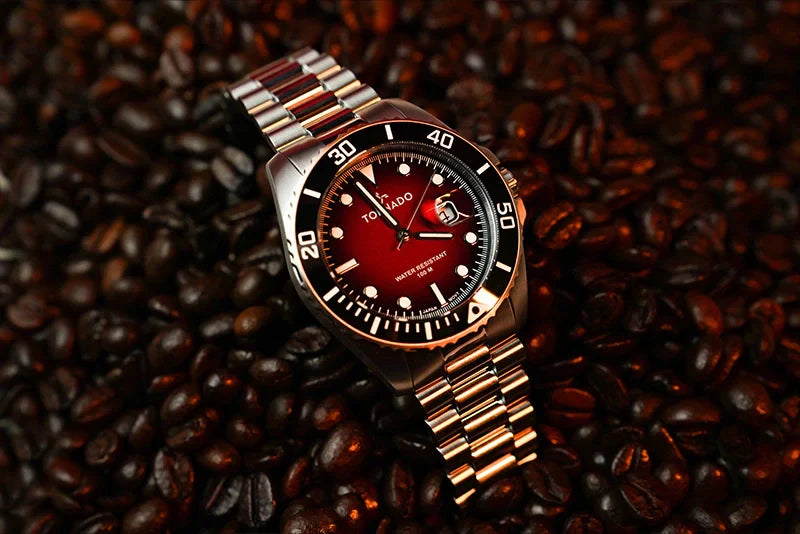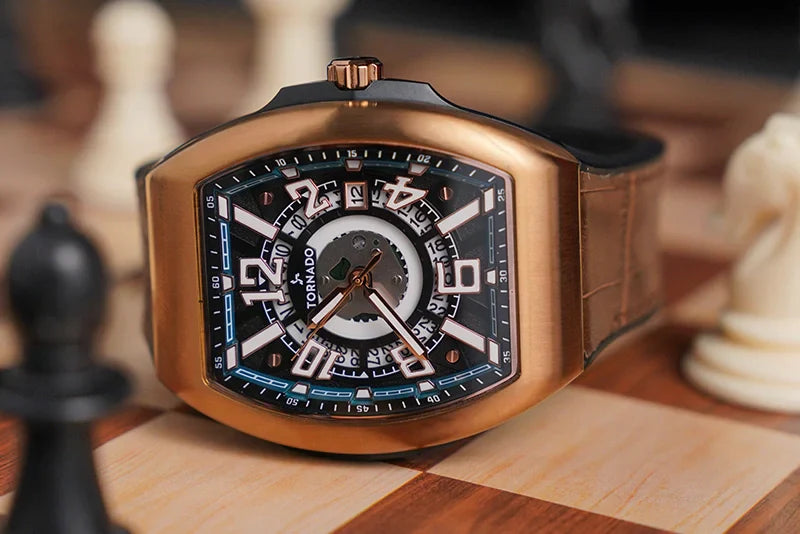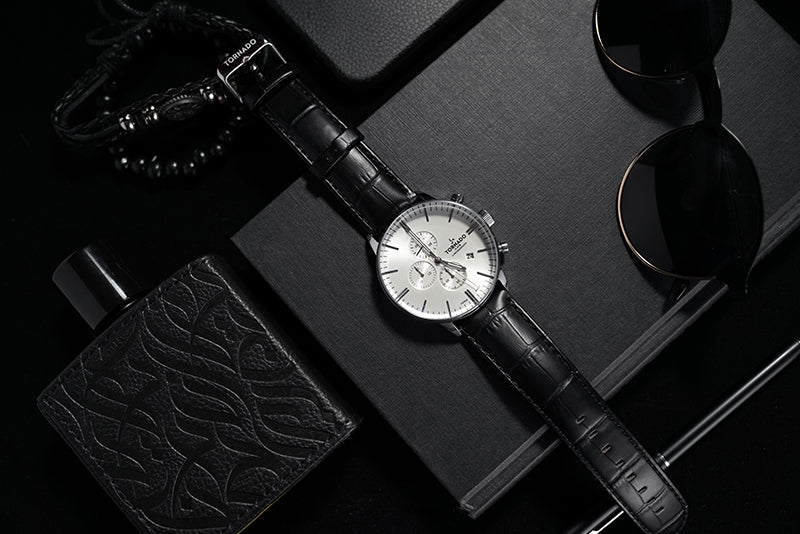
Table of Contents
- Introduction
- What is a Chronograph?
- Chronograph History
- How Does a Chronograph Actually Work?
- Why Watch Collectors Love Chronographs
- What to Look for in a Chronograph Timepiece
- Why Choose Tornado for Chronograph Watches?
- Final Thoughts
Key Takeaways
- A chronograph isn’t just a fancy feature—it’s a practical tool that lets you time things like workouts, laps, or even your morning coffee, all while wearing a stylish watch.
- These watches have been around for over 200 years and have been used in everything from horse races to space missions, so when you wear one, you’re carrying a piece of history on your wrist.
- Whether you like winding your watch by hand, prefer the convenience of an automatic chronograph, or want a low-maintenance quartz option, there’s a chronograph timepiece out there for every lifestyle.
- Watch collectors love chronographs not just for how they look, but for the craftsmanship and intricate mechanics behind them—it’s like wearing a piece of art that also happens to tell time.
- At Tornado, you can find a carefully chosen collection of high-end watches with amazing stopwatch features. These watches combine classic style with precise engineering from the world of Swiss watchmaking.
Introduction
If you're just stepping into the world of fine watches, you’ve likely come across the term chronograph. It sounds technical, maybe even a little intimidating—but it’s actually one of the most useful and fascinating features a watch can have.
A chronograph complication is more than just a fancy word in the watch world. It’s a powerful function that combines both form and function in a single timepiece. According to Hodinkee, a trusted authority in horology, the chronograph remains one of the most sought-after features in luxury watches today.
At Tornado, your trusted destination for luxury chronograph watches in the UAE, we carry a curated collection of chronograph timepieces designed for modern men who value tradition, precision, and style. So, what exactly is a chronograph, and why is it such a big deal? Let’s break it down.
What is a Chronograph?
Put simply, a chronograph is a watch that doubles as a stopwatch. Unlike a standard three-hand watch that just tells the time, a chronograph lets you measure short time intervals—perfect for timing laps, events, or even your morning espresso brew.
A typical chronograph function includes:
- Pushers on the side of the case to start, stop, and reset the timer
- Sub-dials that track seconds, minutes, and sometimes hours
- A central hand that moves independently from the standard timekeeping hands
All of this adds up to one of the most practical and beloved watch complications in the world of horology.
Chronograph History
The story of the chronograph starts in the early 1800s with French watchmaker Louis Moinet, who created the first one to time astronomical events. A few years later, Nicolas Rieussec built one for timing horse races, commissioned by none other than King Louis XVIII.
Fast forward to the 20th century, and chronograph timepieces became vital tools for race car drivers, pilots, and even astronauts. One of the most iconic examples? The Omega Speedmaster—a manual chronograph that went to the moon.
Today, these watches aren’t just for professionals. They’re a must-have for anyone who appreciates Swiss watchmaking, craftsmanship, and heritage.
How Does a Chronograph Actually Work?
A chronograph works through a separate timing mechanism that lives inside the watch’s movement. When you press the start button, the mechanism kicks in and begins tracking elapsed time—without interfering with the regular time display.
There are three main types of chronograph watch for men movements:
1. Manual Chronograph
This vintage style has to be wound by hand. For those who like the physical connection to their watch, it's ideal.
2. Automatic Chronograph
Powered by your wrist's motion, this is the modern gentleman’s go-to. A luxury watch with an automatic chronograph movement delivers both convenience and craftsmanship.
3. Quartz Chronograph
Battery-powered and generally more affordable, quartz models are reliable but don't offer the same prestige as mechanical ones.
Some chronograph functions go beyond basic timing. Look out for tachymeters (for measuring speed), flyback mechanisms (for rapid reset and restart), and even moon-phase displays—all examples of advanced watch complications.
Why Watch Collectors Love Chronographs
For many watch collectors, a chronograph is the crown jewel of their collection. It combines aesthetic appeal, engineering complexity, and practical utility.
Here’s why it stands out:
- Visual balance: The sub-dials give the watch face a more intricate and symmetrical look.
- Functionality: It’s not just beautiful—it works. Whether you're timing your workouts or cooking, it’s genuinely useful.
- Craftsmanship: Putting together mechanical chronographs takes a lot of skill and accuracy, which is why they are such a wonder of Swiss engineering.
Also, let's be honest: it's fun to wear things that remind you of the best years of flying, racing, and exploring.
What to Look for in a Chronograph Timepiece
Buying a chronograph is about more than just style. Here’s what to consider:
1. Movement Type
Are you a fan of hand-wound classics? Go manual. Want convenience? Go for an automatic chronograph. Prefer set-it-and-forget-it? Quartz could be for you.
2. Dial Design
The layout matters. Look for two or three sub-dials, depending on your taste and how much timing functionality you want.
3. Quality of Materials
From sapphire crystal to ceramic bezels, quality is everything in luxury watches. Materials reflect both durability and design sophistication.
4. Brand Reputation
When it comes to Swiss watchmaking, heritage matters. At Tornado, we only feature timepieces from reputable, high-end brands with a strong legacy in chronograph innovation.
Why Choose Tornado for Chronograph Watches?
At Tornado, we specialize in curating luxury watches that blend traditional craftsmanship with modern design. Our chronograph timepieces are chosen for their precision, elegance, and versatility—perfect for any occasion, from boardroom meetings to weekend adventures.
We understand what matters to today’s watch lovers: authenticity, value, and a great shopping experience. So, when you buy a chronograph from Tornado, you're not just getting a watch—you're investing in a long history of style and quality.
Final Thoughts
A chronograph complication isn't just about looking good (though it certainly helps). It’s about embracing a legacy of innovation, utility, and elegance. Whether you're a seasoned collector or just beginning your journey into luxury watches, a chronograph offers a unique blend of tradition and modern functionality.
And when you're ready to find the right one, Tornado Watches can help you pick out a watch that fits your attitude, your wants, and your way of life.
Explore our full collection of chronograph timepieces today—your next favorite watch might just be ticking.
 UAE
UAE
 KSA
KSA
 Qatar
Qatar



